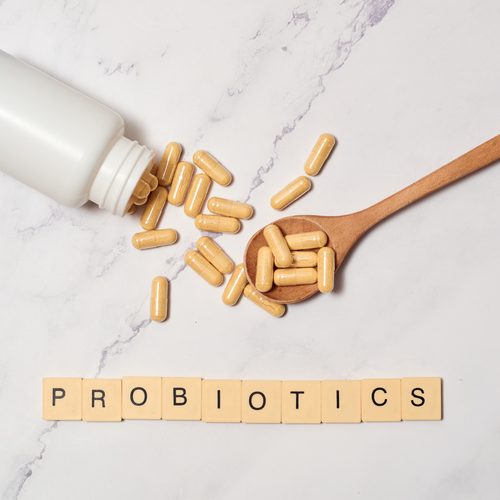What to remember :
The average age of menopause is 51.
It can be influenced by heredity, lifestyle and health.
It is preceded by premenopause and perimenopause.
The symptoms are physical and emotional: hot flashes, sleep disturbances, mood...
A healthy lifestyle helps you get through this stage better.
Menopause is a natural stage in a woman's life, marking the end of her reproductive years. It is accompanied by many physiological and hormonal changes that can impact daily well-being. But at what age does it occur, and how can you prepare for this transition? This article explains everything you need to know about the age of menopause, the factors that influence it, and ways to mitigate its effects.
At what age does menopause occur?
Menopause is officially defined as the cessation of menstruation for 12 consecutive months, without any other medical cause. It occurs on average around the age of 51, but this range can vary significantly between individuals.
The observed age ranges
-
Early menopause : before age 40 (approximately 1% of women).
-
Normal menopause : between 45 and 55 years old.
-
Late menopause : after 55 years.
The age of menopause is influenced by various biological, environmental and genetic factors.
Factors influencing the age of menopause
Several factors can precipitate or delay the onset of menopause.
#1 - Heredity
The age at which your mother or relatives experienced menopause can give an indication of your own. Family history plays an important role.
#2 - The lifestyle
-
Tobacco : Smoking accelerates the decline of ovarian stock, leading to early menopause (up to 2 years earlier).
-
Diet and exercise : A balanced diet and regular physical activity can delay the onset of menopause.
-
Stress : Chronic stress may influence hormone production and affect the age of menopause.
#3 - Health status
Certain autoimmune diseases or treatments such as chemotherapy and radiation therapy can precipitate menopause.
#4 - Pregnancy and hormonal contraception
Women who have had multiple pregnancies or have used hormonal contraceptives for long periods may experience delayed menopause.
The phases preceding menopause
Before menopause, two transition phases exist:
#1 - Premenopause (2 to 10 years before menopause)
It is characterized by hormonal fluctuations leading to irregular cycles, decreased fertility and early symptoms such as hot flashes or sleep disturbances .
#2 - Perimenopause (a few months to 2 years before menopause)
Symptoms worsen: increasingly spaced menstrual cycles, mood swings, weight gain, and night sweats.
Symptoms of menopause
Menopause causes a decrease in the production of sex hormones (estrogen and progesterone), causing various symptoms:
#1 - Common symptoms:
-
Hot flashes and night sweats
-
Sleep disorders
-
Vaginal dryness
-
Weight gain
-
Mood swings, anxiety, depression
-
Slowing of metabolism
#2 - Long-term symptoms:
-
Increased risk of osteoporosis (bone fragility)
-
Decreased muscle mass
-
Increased cardiovascular risk
How to better experience menopause?
Fortunately, there are several solutions to alleviate the effects of menopause and improve quality of life.
#1 - Adopt a balanced diet
-
Adapt your daily diet by focusing on foods rich in calcium, vitamin D and omega-3
-
Maintain sufficient hydration to limit water retention as well as skin and vaginal dryness
#2 - Practice regular physical activity
-
Continue to engage in regular physical activity to maintain muscle and bone mass and avoid physical weakness and the risk of fractures
#3 - Take care of your mental health
-
Relaxing practices: yoga, meditation, sophrology.
-
Maintain good sleep with calming routines.
-
Psychological support if needed.
Conclusion
Menopause is an inevitable stage in a woman's life, occurring on average around the age of 51, but can vary depending on many factors. Although its symptoms can be uncomfortable, a healthy lifestyle and certain natural solutions can help you navigate this transition more smoothly. Don't hesitate to consult a healthcare professional to adapt solutions to your personal situation.
Sources :
[1] Santoro, N., Roeca, C., Peters, BA, & Neal-Perry, G. (2021). The Menopause Transition: Signs, Symptoms, and Management Options. The Journal of clinical endocrinology and metabolism, 106(1), 1–15. https://doi.org/10.1210/clinem/dgaa764
[2] Takahashi, T.A., & Johnson, K.M. (2015). Menopause. The Medical Clinics of North America, 99(3), 521–534. https://doi.org/10.1016/j.mcna.2015.01.006
[3] WHO, 2024, Menopause, accessed from: https://www.who.int/fr/news-room/fact-sheets/detail/menopause















